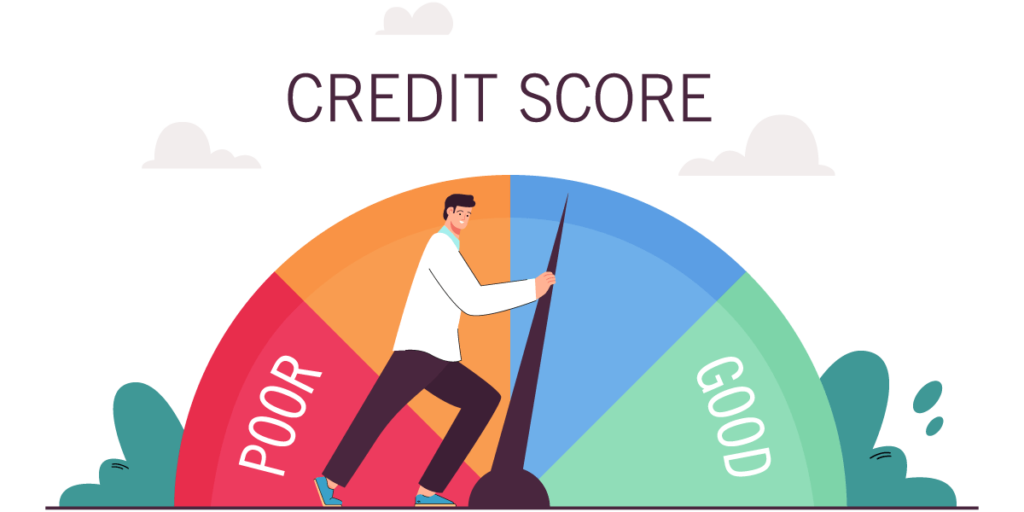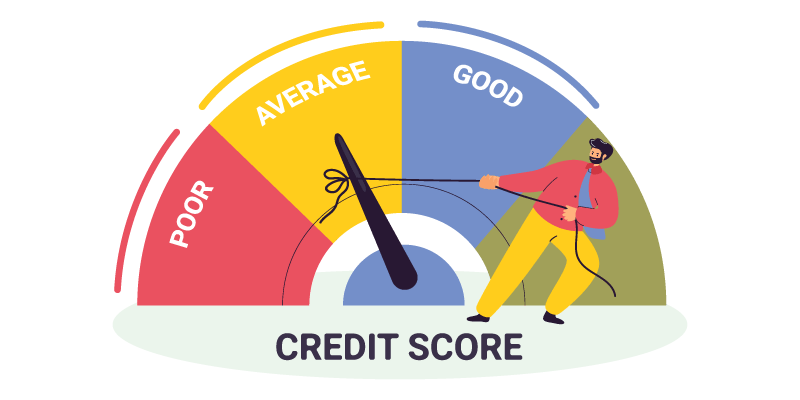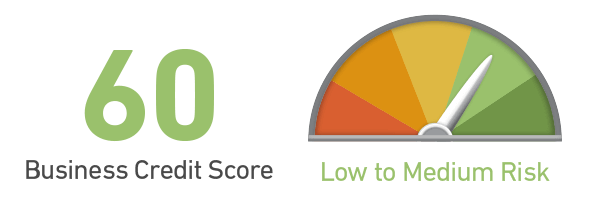
What is a business credit score?
A business credit score shows how financially responsible is your company and how risky it is to lend to your business.
A business credit score is determined on many factors; the strongest factor among all is when you pay your bills.
If you take care of this one thing and pay your bills on time, your business credit score will surely be high with all the credit reporting agencies.
The three main business credit reporting bureaus are Dun & Bradstreet, Experian, and Equifax. Another credible business credit reporting agency is FICO which offers multiple business credit scores.
A few other credit reporting bureaus also collect and sell your business data including LexisNexis Risk Solutions, Creditsafe, and some specialty credit reporting agencies.
Get access to our Business credit building with our Net 30 Accounts platform. Your go-to resource for establishing and managing your business credit profile. Discover a range of tools and resources to help you build your credit and grow your business.
How a business credit score is different from a personal credit score?
A personal credit score shows the creditworthiness of a person. A personal credit score is used for individuals only. A personal credit score shows how likely you’ll pay your bills on time.
A business credit score shows the creditworthiness of a business. Like the personal credit score, a business credit score also represents credit risk for your business.
Paying your bills on time is the most important factor in your business credit score. However, a personal credit score is complex and it uses a mix of factors.
Your business credit score is accessible to more people and businesses than your personal credit score. Only current or potential lenders can check your personal credit score.
You can check your personal credit score for free. Equifax, Experian, and TransUnion will give you a free personal credit report (subject to terms and conditions).
There is a fee to check business credit scores with every business credit reporting agency except Dun & Bradstreet.
When you signup with the Dun & Bradstreet CreditSignal program, you can see your business credit report for the last 14 days. Equifax and Experian charge a premium for a business credit report and score.
How to check your business credit score?
Dun & Bradstreet CreditSignal program offers free business credit reports for the last 14 days. You’ll need to pay a fee for getting a business credit score from other credit reporting agencies.
Experian Intelliscore Plus, which is an Experian service for business credit service, offers a one-time business credit report, ‘CreditScore’, for $39.95.
Other Experian Intelliscre Plus reports costs are:
- ProfilePlus Report for $49.95 for one report
- Business Credit Score Pro offers business credit reports for 30 businesses for $1995 per year
- Business Credit Advantage costs $189 per year per business and offers the most-detailed business credit report
Equifax provides a credit monitoring service at $16.95 per month only. You can also purchase a single business credit report for $99.95.
Equifax offers a group discount. When you buy business credit reports for 5 business, it will cost you $399.95.

How To Establish Your Business Credit Score For New Businesses?
Select the Right Business Legal Structure
You need to create a distinct legal entity for your business to establish and build business credit. A sole proprietorship does not create a distinct legal entity; your business finances and personal finances are mixed as a sole proprietor. You’ll need to create an LLC, LLC, or a corporation to get a business credit score.
Get Federal Tax ID
You’ll need to get a federal tax ID to start business operations. A federal tax ID is also called an Employer Identification Number (EIN). You need EIN for hiring people, applying for business licenses & permits, opening business bank accounts and filing for the tax returns.
Separate Personal and Business Credit Score
Get your personal credit report and separate your business expenses from your personal expenses. Register your business with Dun & Bradstreet, get a D-U-N-S number and get your first business credit report.
Open Business Bank Account
Open a business bank account for your business. This will help you keep your income and expenses for that business separate from your other income and expenses. A business bank account also serves as your foundation for applying for business credit.
How to build your business credit score?

You have established the basis of your business credit score so far. Let me give you the secret formula for an excellent business credit score.
Pay your bills on time and you’ll develop an excellent business credit score over time.
Follow these five steps and build your business credit.
Add Trade References to Business Credit Report
Trade references are your business vendors and suppliers.
The business vendors and suppliers are not required by law to report activity to the credit reporting bureaus.
Report your business transactions with your suppliers and vendors to the credit reporting bureaus and get everything counted towards your business credit score.
Set up Credit with Reporting Suppliers and Vendors
Not all suppliers and vendors report to the credit reporting bureaus. Try to find the suppliers or vendors that do report to the credit bureaus and establish credit with them.
Your business’s suppliers and vendors can help you build a business credit score by reporting your payments to them. If they are not reporting the payments, you can’t develop a business credit score even if you are paying bills on time.
Here is a list of Net 30 vendors to build business credit.
Get Business Credit Card
A business credit card is a sure way to record all of your business transactions with credit reporting agencies.
A business credit card helps you with cash flow needs and builds your business credit. However, keep your spending in check and try not to exceed the 30% credit utilization limit.
Search through the best business credit cards and find one that suits you the best.
Pay Bills on Time
Paying bills on time is the long and short of business credit.
Make a habit of paying bills before the credit term ends. Business credit reports mention a term, ‘Days Beyond Term’, which counts the days after the payment due date.
For example, you got credit from your supplier on Net-30 terms and you made a payment on the 33rd day. This 3-days delay beyond the term will negatively affect your business credit score.
Monitor Business Credit Report Regularly
Keep an eye on your business credit report. Check your business credit report regularly to spot any missing data, inaccurate information, or identity theft.
Staying sharp about your business credit report will deepen your understanding and it will help you build your business credit score in a short time.
Understand how to build business credit in depth by reading our guide.


